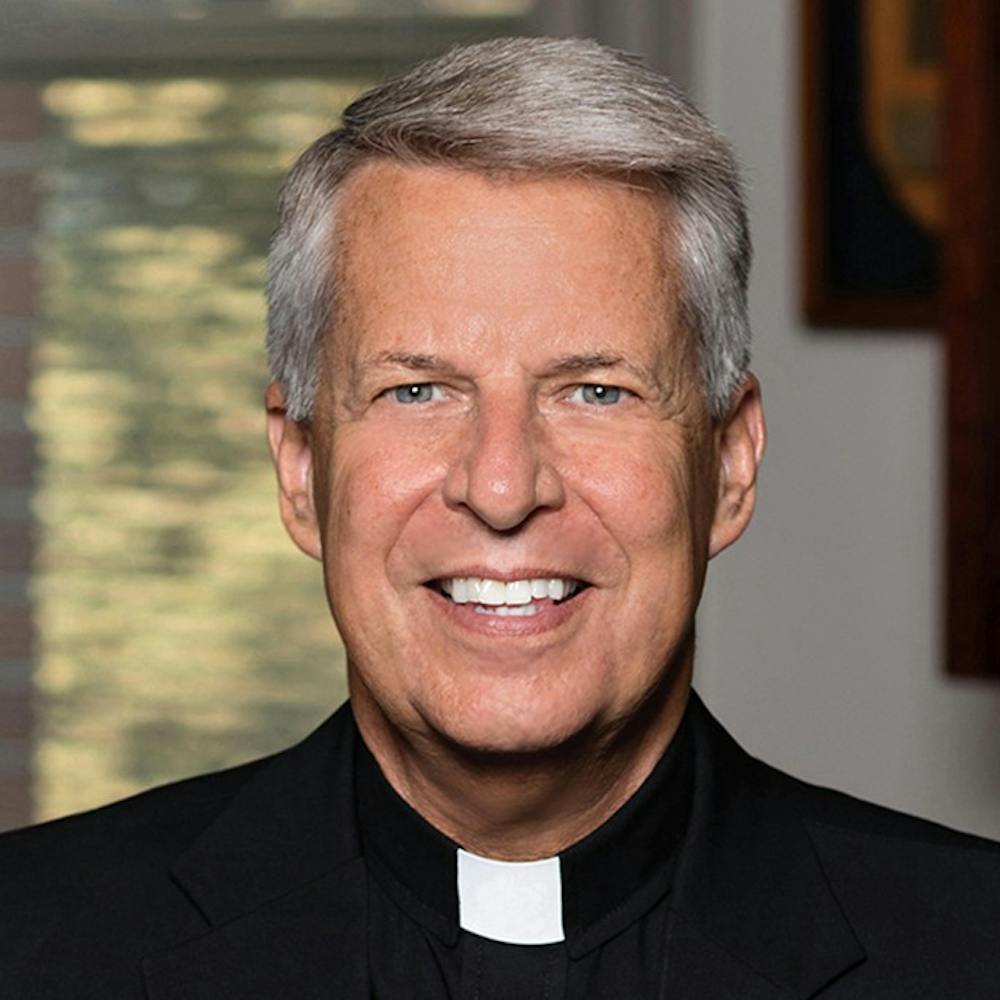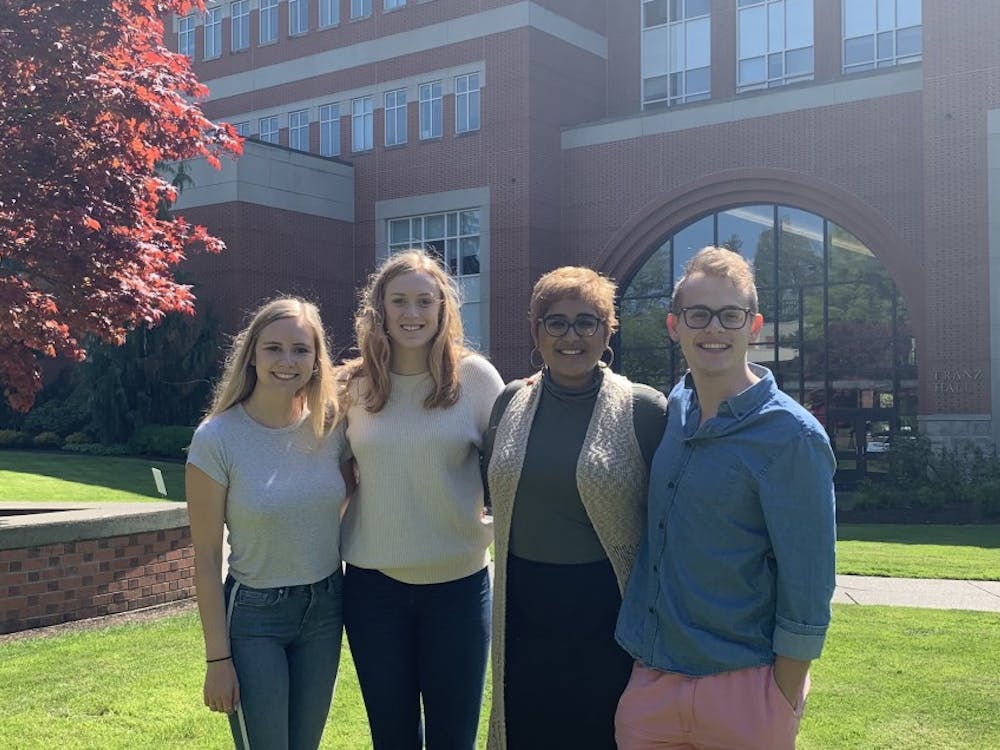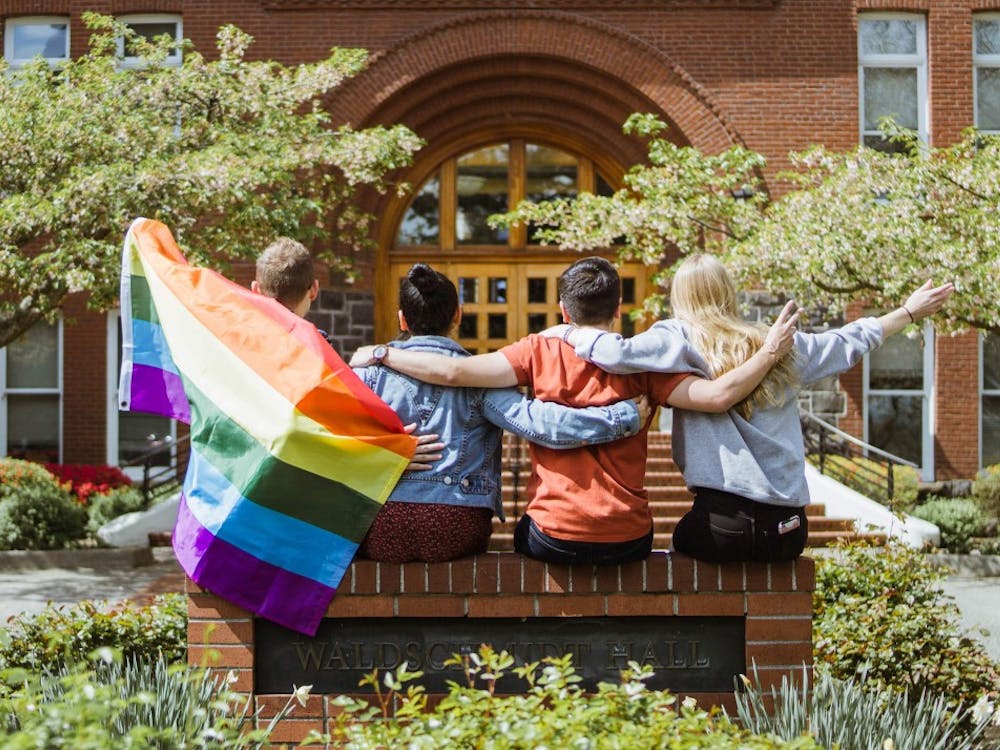Campus just doesn’t feel right during the summer when the students aren’t around. There’s no one playing ultimate frisbee on Pru Pitch. The tables in Clark Library aren’t taken up with laptops and textbooks. The basketball court near Fields and Schoenfeldt sits unused. There’s a downturn in the number of joggers on Willamette Boulevard. Sure, campus remains busy with summer session and camps, but it lacks the distinctive rhythm that’s present during the fall and spring semesters.
That’s why I relish the start of each new academic year. The students arrive and, seemingly overnight, The Bluff magically returns to the state it was built for and enjoys the most — when it’s brimming with energy and activity.
It’s a joy and a privilege for me to welcome you to UP and to the 2019–20 academic year. Whether you are a returning student or you are just joining us, know that this is your home, that you belong here and add infinite value to our community, and that we are so thrilled to have you.
In my annual Convocation Address, I set the stage for the year ahead and establish some collective goals. This year, my remarks are entitled “A Commendation and a Challenge.”
It’s no secret that higher education finds itself in turbulent waters. Americans increasingly question the direction in which our colleges and universities are headed. Many institutions are facing threats to their survival. Justifiably, people question whether higher ed is adequately tackling issues related to equity and access, student health and wellbeing, and providing an education that equips people with the skills necessary to find personal, professional, moral, and spiritual fulfillment.
Despite these challenges, I’m convinced that the University of Portland is poised not only to survive these turbulent times, but indeed to thrive. I look at our Catholic and Holy Cross identities; the strength of our community; and the brilliance, drive and compassion of our students, faculty and staff, and I see an enduring institution. UP isn’t perfect, but when we pause to consider the immense beauty, goodness and grace that’s present at this institution we love, we must feel profoundly blessed.
My address offers a commendation to all who live, work and study on The Bluff for the contributions they make to the excellence of this institution. But my remarks go further by offering a challenge to our entire community, myself included.
The economic, demographic, and cultural problems facing higher education and our world are too immense for us to be satisfied where we are. Each of us must find ways to lean harder than ever into our Catholic and Holy Cross missions. Each of us must think boldly about how we can build an academic community suited to the challenges of contemporary times. Each of us must ask ourselves how we can better answer the call found in the Holy Cross Constitutions to serve one another and extend our mission “across borders of every sort.”
When we work together to harness and channel the creativity, intellectual resources, and drive that exist in this special place, extraordinary things will occur.
Before concluding, I offer a sincere hope and some brief advice as you begin a new year. I hope that you strive to be a true participant in the university community. Invest in this place and its people. Appreciate and embrace the academic, spiritual, and social opportunities that abound. Look out for one another. Offer a simple gesture of kindness, like a smile or a wave as you pass someone on the sidewalk. Support your fellow students by attending performances, research presentations, and athletic games and matches. Most importantly, recognize the inherent dignity of your fellow Pilots and the beauty of this place that we are blessed to call home.
Once again, welcome. Be assured of my prayers for the year ahead.
Mark Poorman is the president of the University of Portland and can be reached at poorman@up.edu.








